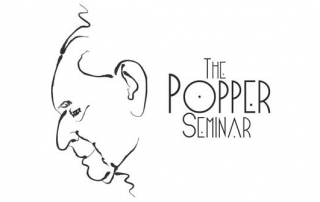Joe Roussos & Anandi Hattiangadi (Stockholm): “A Sceptical Puzzle for Bayesians”
Joe Roussos & Anandi Hattiangadi (Stockholm): “A Sceptical Puzzle for Bayesians”
Belief polarisation occurs when two agents’ posterior beliefs move farther away from one another with respect to the same proposition or set of propositions. Polarisation has traditionally been regarded as a failure of rationality, e.g., the result of cognitive biases influencing the belief states of at least […]





Connect with us
Facebook
Twitter
Youtube
Flickr